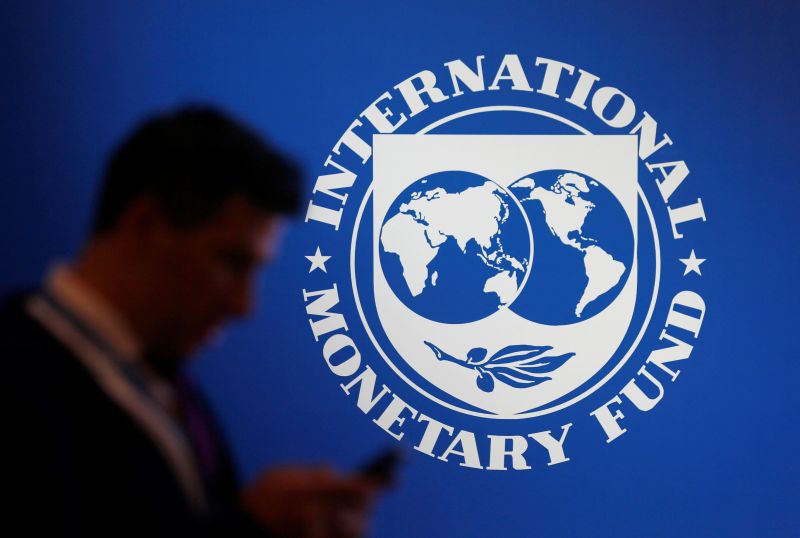
The United States Measures Its Lead Over Competitors in Artificial Intelligence in 'Months'

A look at the intense rivalry between nations to dominate AI technology and its impact on the global economy.
The Race for AI Dominance
The United States measures its lead over competitors in artificial intelligence in 'months,' according to a lawmaker, highlighting the intense rivalry between nations to dominate a technology poised to transform the global economy.
A participant stands near a logo of IMF at the International Monetary Fund - World Bank Annual Meeting 2018 in Nusa Dua, Bali, Indonesia, October 12, 2018. REUTERS/Johannes P. Christo
Speaking at the annual meeting of the World Economic Forum in Davos in Switzerland, Republican Senator Mike Rounds emphasized the Biden administration's decision to tighten controls on exports of advanced AI chips to China, which bought the United States 'a few more months' to maintain its competitive edge.
Rounds stated, 'It is so sensitive to us that we remain a leader in terms of the high-speed technology available in the most advanced chips that we measure our spread from us versus our near-peer adversaries in months.'
The move to restrict the availability of cutting-edge chips has led to a tit-for-tat tech war between the United States and China, with chips being vital for everything from smartphones and electric cars to advanced computing and weapons manufacturing.
Washington's expanded restrictions on chip sales to China in October further tightened a sweeping set of export controls introduced a year earlier, escalating tensions between the two superpowers.
The goal of slowing the technological advancement of China's military has become a key priority for the US government, with AI poised to influence 'how we fight wars,' according to Rounds, who sits on the armed services and intelligence committees in the US Senate.
Impact on Global Employment
AI's impact on global employment is a major concern, with the International Monetary Fund predicting that nearly 40% of jobs around the world will be affected by AI, replacing some and complementing others.
This prediction has raised concerns about job displacement and the need for workforce reskilling and upskilling to adapt to the changing job landscape due to AI advancements.
The potential disappearance of jobs due to AI has become a topic of discussion at the World Economic Forum's annual meeting, with multiple sessions exploring the impact of the technology on society, jobs, and the broader economy.
AI's influence on jobs and the economy has drawn attention from industry leaders, with IBM CEO Arvind Krishna emphasizing the advantage for countries and companies that embrace AI, stating that they 'are going to be advantaged forever' due to the technology's ability to deliver an 'incredible' boost to productivity.
Preparing for the AI Revolution
The race to embrace AI technology is a focal point for countries and companies, with the need to adapt and integrate AI to remain competitive in the global economy.
The urgency to embrace AI is emphasized by IBM CEO Arvind Krishna, who highlighted that countries and companies that embrace AI 'are going to be advantaged forever' due to the technology's potential to significantly enhance productivity.
The International Monetary Fund's report on AI's impact on jobs has underscored the need for proactive measures to address the potential displacement of jobs and the need for workforce training and development to leverage AI's capabilities.












